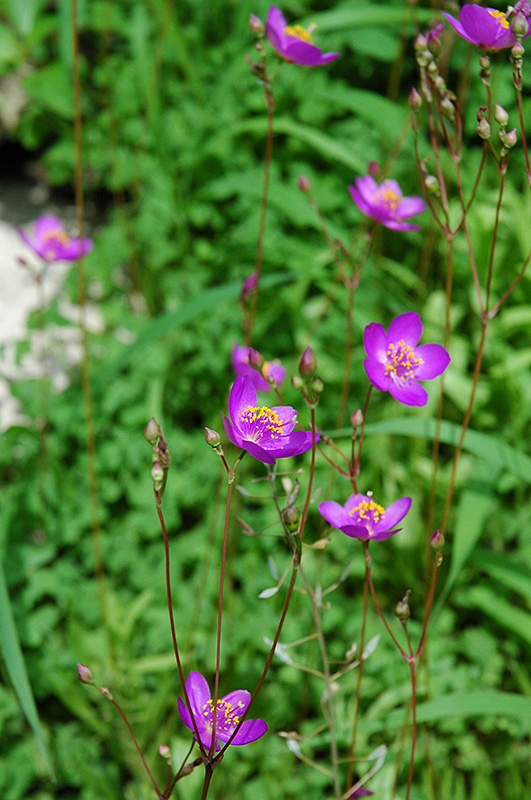Plant Finder
Plant Height: 4 inches
Flower Height: 8 inches
Spacing: 8 inches
Sunlight:
![]()
Hardiness Zone: 5
Ornamental Features
Largeflower Fameflower features delicate violet flowers with yellow eyes at the ends of the stems in mid summer. Its succulent needle-like leaves remain green in color throughout the season. The brick red stems are very colorful and add to the overall interest of the plant.
Landscape Attributes
Largeflower Fameflower is an herbaceous perennial with an upright spreading habit of growth. It brings an extremely fine and delicate texture to the garden composition and should be used to full effect.
This is a relatively low maintenance plant, and should not require much pruning, except when necessary, such as to remove dieback. It has no significant negative characteristics.
Largeflower Fameflower is recommended for the following landscape applications;
- Rock/Alpine Gardens
Planting & Growing
Largeflower Fameflower will grow to be only 4 inches tall at maturity extending to 8 inches tall with the flowers, with a spread of 12 inches. When grown in masses or used as a bedding plant, individual plants should be spaced approximately 8 inches apart. Its foliage tends to remain low and dense right to the ground. It grows at a slow rate, and under ideal conditions can be expected to live for approximately 5 years. As an herbaceous perennial, this plant will usually die back to the crown each winter, and will regrow from the base each spring. Be careful not to disturb the crown in late winter when it may not be readily seen!
This plant should only be grown in full sunlight. It prefers to grow in average to moist conditions, and shouldn't be allowed to dry out. It is not particular as to soil type or pH. It is quite intolerant of urban pollution, therefore inner city or urban streetside plantings are best avoided. This species is native to parts of North America.
